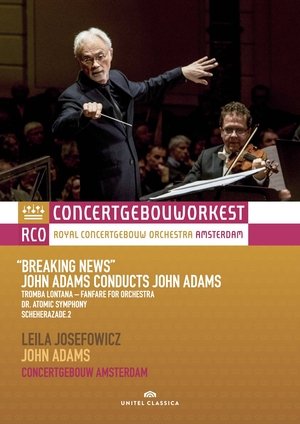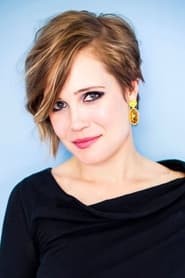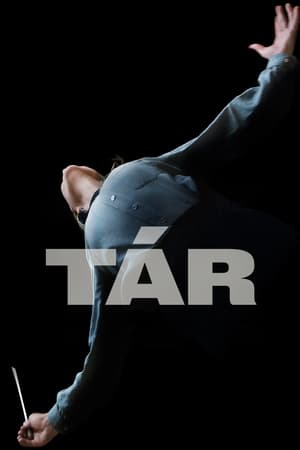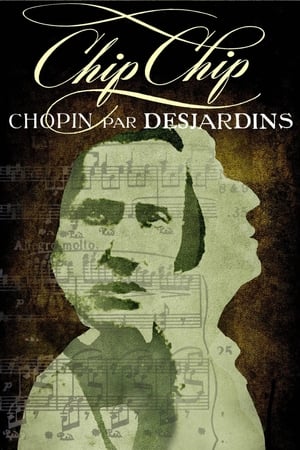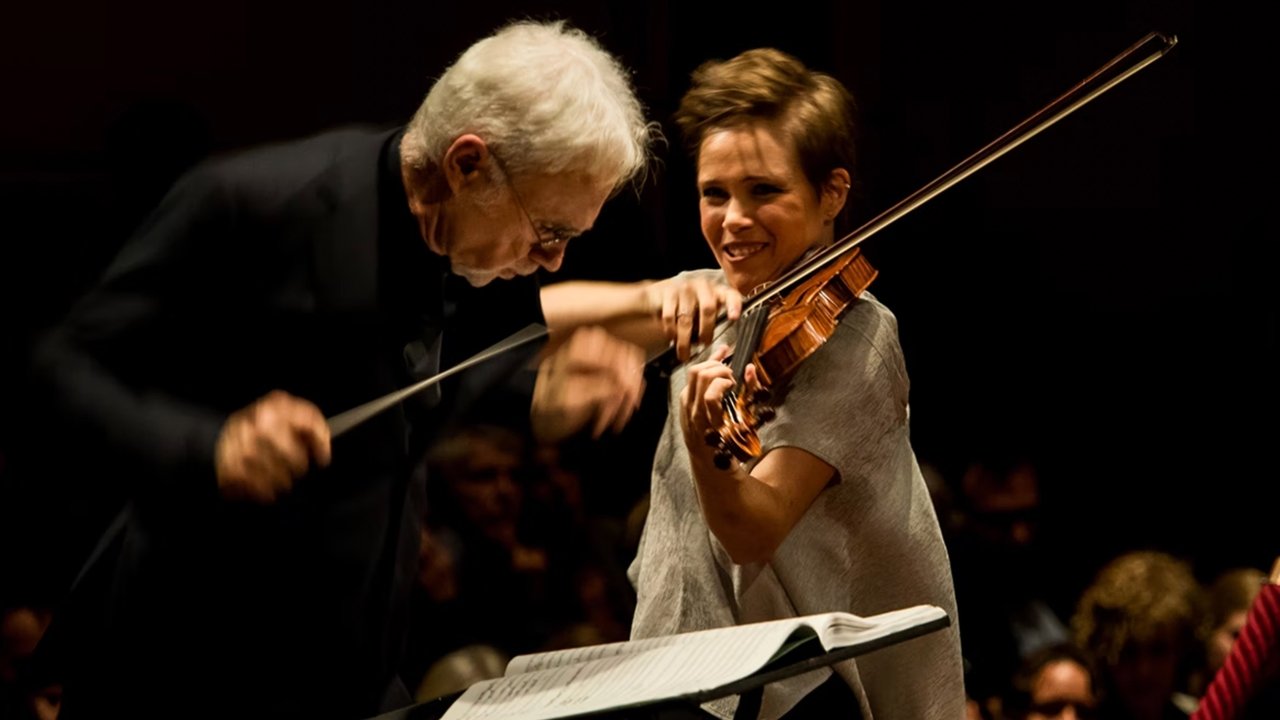
John Adams conducts John Adams(2015)
Like many of John Adams’ operas, Doctor Atomic is based on recent world historical events—here, the effusive Robert Oppenheimer, “father of the atomic bomb,” anxiously awaits the bomb’s first test in Los Alamos, New Mexico. Adams adapted the work into a symphony, comprising its three main acts. In the second half of the program, Adams conducts his 2015 violin concerto, Scheherazade.2, which restages the tale of the One Thousand and One Nights heroine as a strong woman navigating a patriarchial society, incarnated by the solo violin part. The work was composed specifically for Canadian-American virtuoso Leila Josefowicz and co-commissioned by the Royal Concertgebouw Orchestra, who perform it to perfection. The evening then closes out with Tromba Lontana, an orchestral fanfare written to mark the 150th anniversary of Texas’s independence from Mexico in 1836.


Movie: John Adams conducts John Adams
Similar Movies
 7.7
7.7The Metropolitan Opera: The Exterminating Angel(en)
After the acclaimed Met premiere of Thomas Adès's "The Tempest" in 2012, the composer returned with another masterpiece, this time inspired by filmmaker Luis Buñuel's seminal surrealist classic "El Ángel Exterminador", during the 2017–18 season. As the opera opens, a group of elegant socialites gather for a lavish dinner party, but when it is time to leave for the night, no one is able to escape. Soon, their behavior becomes increasingly erratic and savage. The large ensemble cast tackles both the vocal and dramatic demands of Adès's opera with one riveting performance after another. Tom Cairns, who also penned the work's libretto, directs an engrossing and inventive production, using a towering wooden archway to trap the characters onstage. And Adès himself takes the podium to conduct the frenzied score, which features a host of unconventional instruments, including the eerie electronic ondes Martenot.
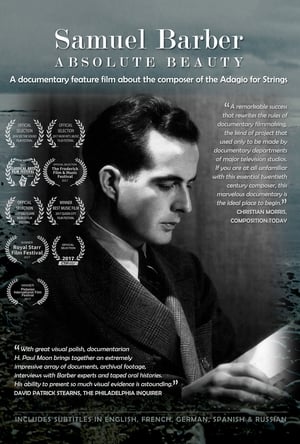 10.0
10.0Samuel Barber: Absolute Beauty(en)
Known for his mournful "Adagio for Strings," Samuel Barber was never quite fashionable. This acclaimed film is a probing exploration of his music and melancholia. Performance, oral history, musicology, and biography combine to explore the life and music of one of America’s greatest composers. Features Thomas Hampson, Leonard Slatkin, Marin Alsop and many more of the world's leading experts on Barber's music, with tributes from composers Leonard Bernstein, Aaron Copland, Virgil Thomson and William Schuman. The film was broadcast on PBS, and screened at nine film festivals internationally, with three best-of awards. It was named a Recording of the Year 2017 by MusicWeb International.
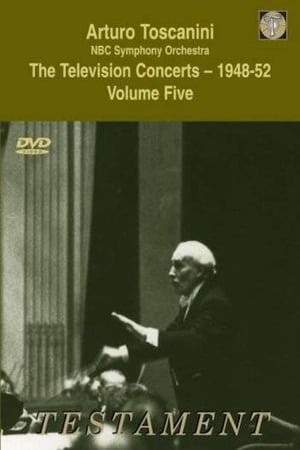 0.0
0.0Toscanini: The Television Concerts, Vol. 9: Beethoven: Symphony No. 5/Respighi: The Pines of Rome(en)
The historic Toscanini television concerts with the NBC Symphony Orchestra. Broadcast #9 was of a concert on March 22, 1952, at Carnegie Hall, featuring Beethoven's 5th Symphony and Respighi's Pines of Rome. (Concerts #8 and #9 were released on "Vol. 5" in the DVD series.)
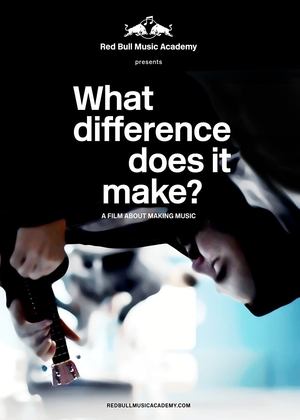 5.1
5.1What Difference Does It Make?(en)
A documentary that explores the challenges that a life in music can bring.
 6.8
6.8Four Minutes(de)
Jenny is young. Her life is over. She killed someone. And she would do it again. When an 80-year-old piano teacher discovers the girl’s secret, her brutality and her dreams, she decides to transform her pupil into the musical wunderkind she once was.
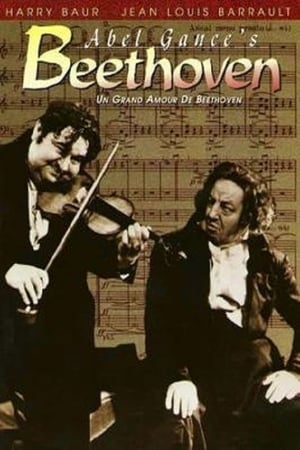 6.9
6.9The Life and Loves of Beethoven(fr)
Lyrical biography of the classical composer, depicted as a romantic hero, an accursed artist.
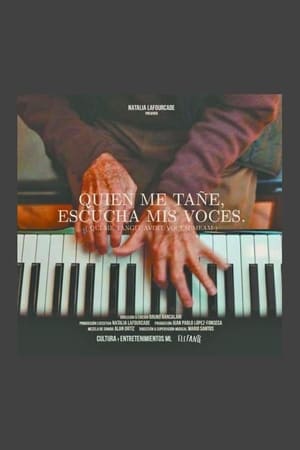 8.0
8.0Who plays me, hears my voices(es)
"Who plays me, hears my voices”, shows a recent moment in the life of Gaston Lafourcade, a classical pianist and harpsichordist who, at the age of 83, enters a recording studio for the first time in his life to record a solo album and to join his daughter, Natalia Lafourcade, who during a recess period in her career, decides to embark on this adventure as a love letter to her father and as a way to enjoy what brings them together, beyond blood ties: their deep love for music.
Vilém Veverka a Ensemble Opera Diversa(cs)
Renowned Czech oboist in the Janáček Philharmonic Orchestra Ostrava chamber music series. Vilém Veverka, one of the most respected Czech oboists, performs as a soloist with major orchestras and has performed a number of demanding compositions from the second half of the 20th century in European premieres. This time, he will present important works by Czech composers to the audience together with the string orchestra Ensemble Opera Diversa. The highlights of the concert are compositions by Gideon Klein and Pavel Haas, who belong to the so-called Terezín composers. Pavel Haas' Suite for Oboe and Piano, Op. 17, was composed in the autumn of 1939 under the shadow of occupation, and its arrangement for oboe and string orchestra by composer Ondřej Kyas is a reference to the unfinished nature of Haas' composition.
 6.2
6.2House of Ricordi(it)
The film covers a hundred years in the lives of the Ricordi family, the Milan publishing house of the title, and the various composers and other historic personalities, whose careers intersected with the growth of the Ricordi house. It beautifully draws the parallel between the great music of the composers, the historic and social upheavals of their times, as well as the "smaller stories" of the successive generations of Ricordi.
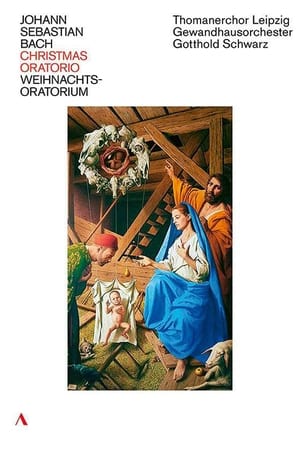 0.0
0.0Johann Sebastian Bach -The Well Tempered Clavier Book II Sir Andras Schiff(de)
In 2018, the Thomanerchor and the Gewandhausorchester Leipzig performed in the Thomaskirche Leibzig under the direction of Gotthold Schwarz together with an internationally renowned ensemble of soloists.
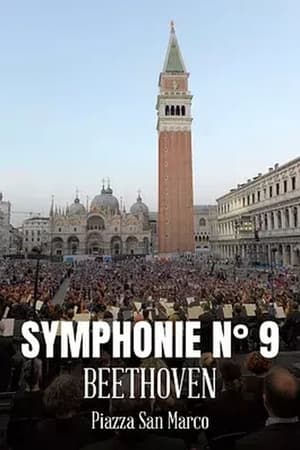 0.0
0.0Symphony n. 9 by Ludwig van Beethoven in St. Mark’s Square(it)
Juraj Valčuha conducts Beethoven's Symphony 9th.
 8.6
8.6The Nutcracker(en)
The Nutcracker is Mikhail Baryshnikov's breathtaking and critcally acclaimed Emmy nominated production. The thisspectacular performance is danced by the magnificent team of Baryshnikov, one of the greatest classical dancers of the century, and Gelsey Kirkland, both chowcased at the peak of the their careers, with members of the American Ballet Theatre.
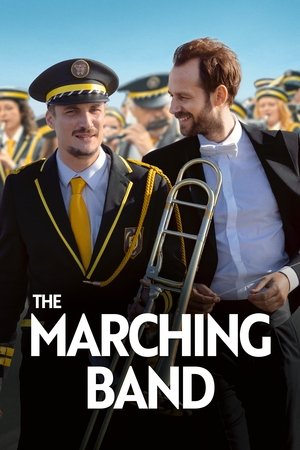 7.4
7.4The Marching Band(fr)
Diagnosed with leukemia, a successful orchestra conductor learns that he is adopted, and his younger brother is in a village marching band. The conductor decides to help them win a regional contest.
 0.0
0.0The Metropolitan Opera Centennial Gala(en)
In celebration of its 100th anniversary in 1983, the Metropolitan Opera hosts a four-hour performance uniting some of the world's most spellbinding opera singers and conductors. The event includes a ballet from Samson et Dalila and boasts incredible classical performances from Kathleen Battle, Plácido Domingo, Jose Carerras, Leonard Bernstein, Marilyn Horne, Leona Mitchell, Luciano Pavarotti and many more.
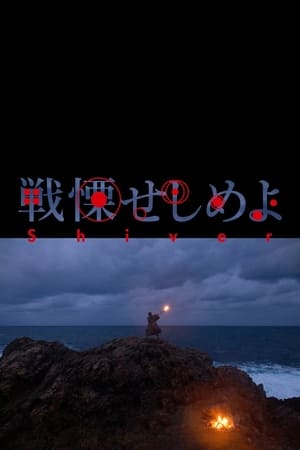 9.3
9.3Shiver(ja)
Toyoda Toshiaki went to Sado Island and filmed musician Koshiro Hino and Kodo, the local Taiko Performing Arts Ensemble, while they performed music composed especially for Shiver.
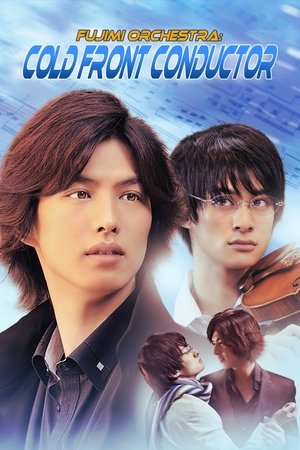 5.0
5.0Fujimi Orchestra: Cold Front Conductor(ja)
Tonoin Kei, a musical genius, becomes the new conductor of Fujimi, clashing with the group's leader, Morimura Yuuki, who is unaware of Kei's feelings for him.
